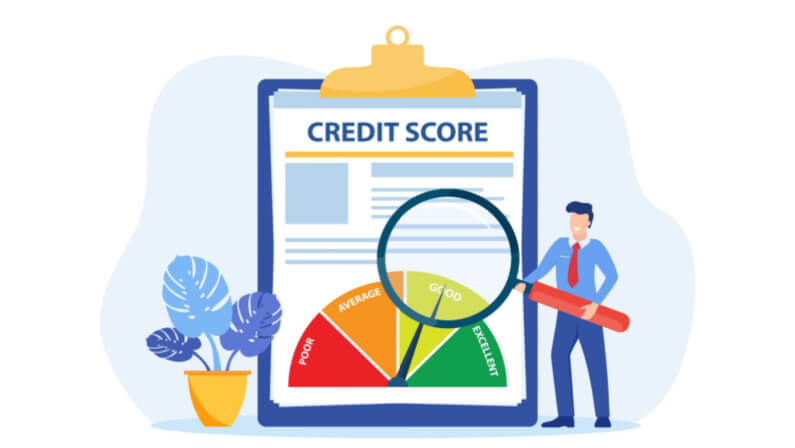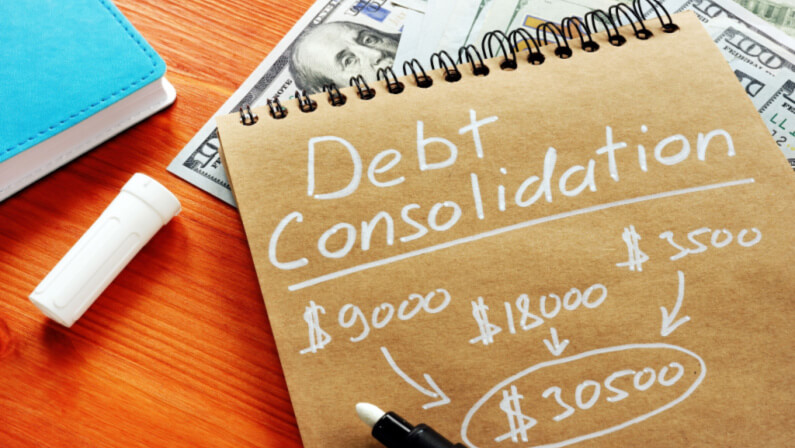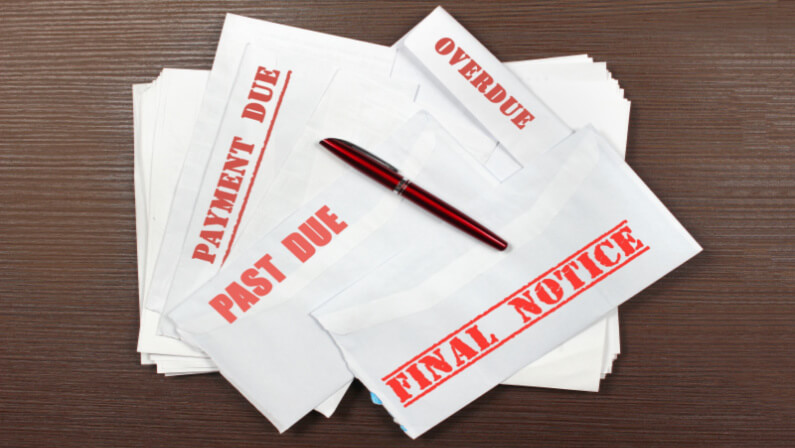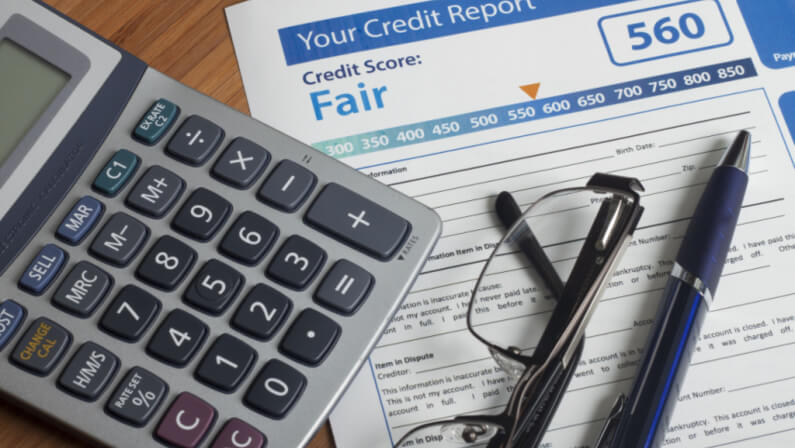Having a good credit score is a good indicator of your financial health. Lenders can see right away how responsible you are with credit by looking at this.
To improve your credit rating, there are a number of things you can do. It’s not easy, and it will take some time and effort. An easy-to-follow guideline for raising your credit score can be found in this article.
What Is A Credit Score?
A person’s ability to manage their debt is measured by their credit score. Your credit score is based on a variety of factors, including your payment history, the amount of credit you’ve used (also known as your credit utilization ratio), how long you’ve had an account, and the types of credit you’ve used.
Internationally, credit scores range between 350 and 800. The better your credit score, the more likely you are to get a loan.
Why Is It Important To Have A Good Credit Score

Most people can save tens of thousands of dollars over the course of their lives simply by having a good or excellent credit score.
When it comes to home loans, auto loans, and other forms of credit, those with good credit are eligible for lower rates. More banks compete for the business of those with better credit ratings and offer better rates, fees, and benefits.
On the other hand, those with bad credit are seen as higher-risk borrowers, which results in fewer lenders competing for their business.
Furthermore, having a low credit score can make it difficult for you to obtain life insurance, rent a car, or even find rental housing.
Good Tips On How To Raise Your Credit Score
If you’re looking for the best way to raise your credit score fast, then read the following tips:
Review Your Credit Reports

If you want the fastest way to build credit, it helps to be aware of potential positive or negative factors that could affect your credit in order to enhance it. Checking your credit history can help with that.
A history of on-time payments, low credit card balances, a variety of credit card and loan accounts, older credit accounts, and a few credit inquiries are all factors that raise your credit score.
Major factors that hurt a credit score include missed or late payments, excessive credit card balances, collections, and judgments.
Get A Handle On Bill Payments
As you can see, your credit score is most influenced by your payment history. For this reason, it’s preferable that paid-off debts like your previous student loans remain on your record. It works to your advantage if you make on-time, responsible debt payments.
So, making on-time payments is an easy approach to raising your credit score.
Here are some pointers for accomplishing that:
- Establishing a method for filing monthly bills, either on paper or digitally
- Creating due-date alerts can notify you when a bill is approaching.
- Automating bank account withdrawals for bill payments
Another choice is to charge all of your monthly bill payments—or as many as you can—to a credit card. In order to avoid paying interest, this plan presupposes that you’ll pay the balance in full each month.
If you choose this option and establish a history of on-time payments, it may make paying your bills easier and raise credit score quickly.
Aim For 30% Credit Utilization Or Less

The percentage of the credit limit that you are currently using is known as credit utilization.
It ranks as the second most significant component in determining credit scores, behind payment history.
Paying up your credit card balances in full each month is the simplest approach to keeping your credit utilization under control.
If you find it difficult to always accomplish that, a decent rule of thumb is to keep your total debt due at or below 30% of your overall credit limit. Then, you can concentrate on reducing that to 10% or less, which is recommended for raising your credit score.
Asking for a credit limit increase is another approach to lower your credit utilization ratio. If your debt doesn’t rise in tandem with your credit limit increase, it can benefit your credit utilization.
The majority of credit card issuers let you submit an online request for a credit limit increase; all you’ll need to do is update your annual household income. In less than a minute, you might get your increased limit approved.
Limits Your Requests For New Credit—And The Hard Inquiries With Them
There are two categories of credit history queries, frequently referred to as hard and soft inquiries.
A typical soft inquiry may be something like you checking your own credit, allowing a possible employer to do so, financial organizations you already do business with reviewing your credit, or credit card businesses looking into your file to see if they want to give you pre-approved credit offers. Your credit score will not be impacted by soft queries.
However, hard inquiries can have a negative impact on your credit score for anywhere between a few months and two years. Applications for a new credit card, a mortgage, an auto loan, or another type of new credit can all be considered hard enquiries.
The odd hard query won’t likely have much of an impact, but a lot of them quickly can lower your credit score.
Banks could interpret your demand for money as a sign that you are having financial problems and pose a greater risk as a result. Avoid applying for new credit for a time if you’re trying to raise your credit score.
Make The Most Of A Thin Credit File

A person with little or no credit history has a “thin file,” which is their credit report. Thin file consumers are those that are just starting out and may not have ever had a credit card or taken out a loan.
You don’t have enough credit history on your report to calculate a credit score if you have a thin credit file. Fortunately, there are strategies for building a strong credit score and filling out a sparse credit file.
One is Experian Boost, a relatively new tool that collects financial information typically not included in credit reports, like your banking history and utility payment history, and incorporates it into the Experian FICO credit score calculation.
It is free to use and intended for those with poor or no credit who have a track record of promptly paying their other debts.
Renters have another choice. There are various systems that enable you to receive credit for on-time rent payments if you pay your rent on a monthly basis
Keep Old Accounts Open And Deal With Delinquencies
Your credit score’s age-of-credit component examines how long you’ve had your credit accounts open. Lenders see you more favorably the older your average credit age is.
Don’t close any old credit accounts that you aren’t utilizing. Closing credit cards when you have a balance on another card would reduce your available credit and raise your credit usage ratio, which might lower your score a few points even if the credit history for those accounts would still be on your credit report.
Consider Consolidating Your Debts

It can be advantageous for you to obtain a debt consolidation loan from a bank or credit union and use it to pay off all of your outstanding bills if you have a number of them.
If you can get a reduced interest rate on the loan, you’ll be able to pay off your debt more quickly because you’ll only have one payment to worry about. This could be one of the ways to boost credit score fast and lower your credit use percentage.
Use Credit Monitoring To Track Your Progress
Credit monitoring programs make it simple to track the changes in your credit score. These services, many of which are free, keep an eye out for modifications to your credit record, including a paid-off account or a newly opened account.
Additionally, they often allow you access to at least one of your monthly updated credit scores from Equifax, Experian, or TransUnion.
Many of the top credit monitoring services can also aid in your prevention of fraud and identity theft. For instance, you can contact the credit card provider to report suspected fraud if you receive a notification that a new credit card account that you don’t remember opening has been reported to your credit file.
Don’t Miss Payments

One of the most crucial elements in calculating your credit ratings is your payment history, and a long track record of on-time payments will help you on how to improve credit scores fast.
You must avoid missing any loan or credit card payments by more than 29 days in order to accomplish this. The credit bureaus may disclose payments that are more than 30 days overdue, which will lower your credit score.
As long as you take care not to overdraw your bank account, setting up automated payments for the minimal amount required can help you avoid forgetting to make a payment.
Contact your credit card company straight away to attempt and discuss hardship options if you’re having problems paying a debt.
It can also be crucial to keep track of accounts like subscription services and gym memberships that don’t often show up on your credit reports.
Although making on-time payments might not improve your credit, having an account sent to collections could still lower your scores.
Contact Your Creditors
If you miss deadlines and are unable to pay your payments on a regular basis, take action right away to establish a payment plan.
Addressing your issue as soon as possible will lessen the negative effects of late payments and large balances left owing.
Diversify Your Accounts

Your credit mix, which includes credit cards, mortgages, auto loans, and student loans, accounts for 10% of your overall credit score.
As long as you complete your payments on time, adding another component to the mix improves your credit score.
Quick Loan Shopping
If you have low credit and are unable to find another option to raise your score, you might want to think about applying for a quick loan.
This is the last option and often involves small loans of $250 to $1,000 that get your repayment history reported to credit agencies and can improve your credit score.
How Long Does It Take To Rebuild A Credit Score?
The average time it takes for your credit score to noticeably alter is three to six months of positive credit conduct.
Unless the negative information on your credit report was a little blip, like being late with a bill payment one month, it is tough to make a change any faster.
While a timeline for credit restoration is impossible to specify, it is safe to say that the less bad information you have on your report—such as missed payments, credit cards that are maxed out, frequent credit applications, bankruptcy, etc.—the simpler it will be to restore your credit score.
A negative credit score needs more time to be repaired than a good one does to be built. Errors lower your credit score and increase the likelihood that you won’t get a loan.
Even if there are lenders who offer loans to borrowers with terrible credit, borrowing with them results in higher interest costs of hundreds or even thousands of dollars. A low credit score can also make it difficult to find a job, set up utilities, or rent an apartment.
How Credit Scores Are Calculated

By examining one of your credit reports, scoring models—a type of computer algorithm—determine your credit score.
A certain score may be calculated using multiple elements or the same factors weighted differently by scoring algorithms. Consumer credit scores, however, often have a few things in common:
Scores are determined using the data from one of your credit reports.
The risk that a borrower will be 90 days past due on a payment in the following 24 months is predicted using scoring models.
A person is less likely to fall behind on a bill if they have a higher score and vice versa.
The FICO and VantageScore scoring methods are used by the great majority of lenders to determine credit scores. Their generic credit scores’ most recent iterations range from 300 to 850, and a number in the mid-600s or more is frequently regarded as an excellent credit score.
It shouldn’t come as a surprise that the actions you do to try and raise one score can assist raise all of your credit ratings given that various credit scores use the same underlying data to attempt to forecast the same outcome.
For instance, paying your bills on time might raise all of your credit ratings, whereas skipping payment will probably lower them all.
Does Paying Off Collections Improve My Credit Score?
Because collections remain on your report for seven years, historically, paying them off has not increased your credit score.
You cannot foresee the method your lender will use to determine your credit score because newer methods do not consider collections against you after they have a zero amount.
Does Getting A New Credit Card Hurt Your Credit?
Depending on your circumstances, getting a new credit card might either help or destroy your credit.
Although it will result in a new hard inquiry on your account and a younger average credit age, both of which could hurt your score, it can assist to enhance your credit utilization % and credit mix.
Adding a new credit card may probably drop your score temporarily for people who are still building their credit, but over time it will increase.
Key Takeaways
A loan comes with a lot of responsibility, so try your best to manage it and make on-time payments.
Financial harm could result from having a low credit score, which would also prevent you from getting fresh credit when you most need it.
Our goal at Centennial Funding is to prevent unforeseen financial situations and keep you out of bankruptcy. We assist you with debt management and relieve lending tension.
When you contact us, one of our Finance Managers can assist you with the enrolling process and address any issues you may have. We’ll arrange a face-to-face meeting as soon as your plan is complete to ensure everything is flawless.

Leave a Reply